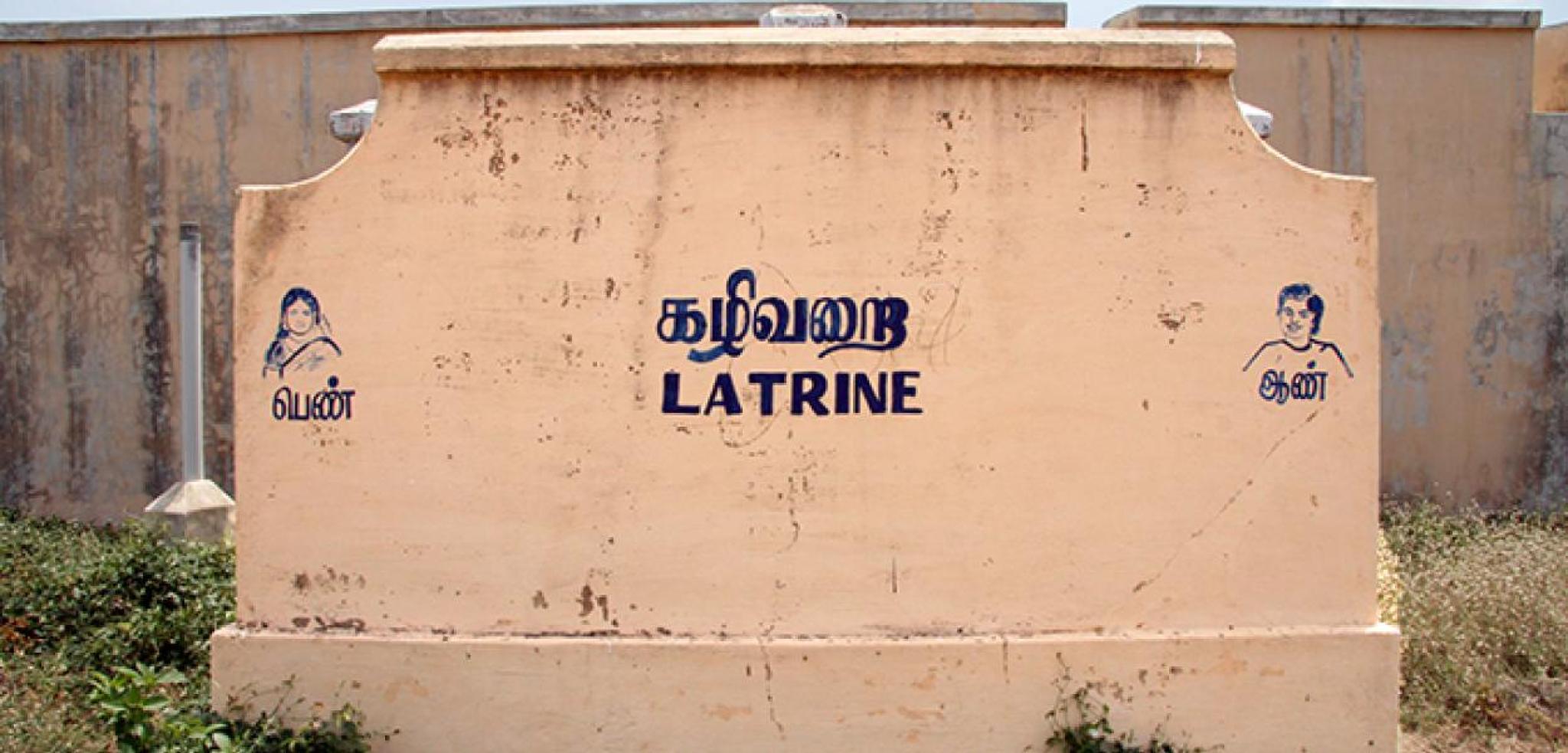Perfection: an introduction

Dr Shameem Black, Associate Professor Matt Tomlinson and Dr Jack Fenner
Nobody’s perfect. And yet... Perfection makes us dream and dare; it nudges us along our daily duties; it wakes us up in the middle of the night. Perfection can promise us fantastic rewards, while it also can also imprison us in failure.
In this issue of paradigm_shift, we dive into diverse projects of perfection that shape lives in Asia and the Pacific. We explore how societies have yearned for the perfect citizen, the perfect energy source, even the perfect toilet. We learn how individuals have struggled to become the perfect beauty or the perfect believer. We explore counterintuitive and confronting notions of perfection, such as the perfect hijack.
Perfection, as a concept, sits uneasily between worlds of relative value and transcendent ideals. It should be obvious that what is perfect for one person might be disturbing – and scandalously imperfect – for another. All of the quests described in the following pages take place in a world of competing ideals. Kindly grandmothers, enthusiastic Instagram commentators, earnest religious leaders and coercive government officials all weigh in on what a perfect world should be. In doing so, they often reflect their own values back to themselves, but tilt the mirror upward as if perfection shimmered above us all, recognisable to everyone, yet always at a distance. The pursuit of perfection is often the pursuit of power. Many essays in this volume stress how projects of perfection seek heightened, even absolute, control over the world around us. Dreams of perfection can be totalitarian ones.
Diverse languages
In English, the word ‘perfect’ implies a certain finality. If we look back to its Latin roots, perfect means ‘done completely’. As we have learned from consulting our colleagues across and beyond the School of Culture, History and Language, many Asian and Pacific expressions for ‘perfect’ also share this sense of completion. In Mandarin Chinese, wanmei can be translated as ‘complete and beautiful’. In Japanese, kanpeki is composed of the characters for ‘finished’ and ‘jewel’. In Indonesian, the word sempurna connotes the feeling of fulfillment when nothing is missing. In Tok Pisin, one of Papua New Guinea’s national languages, ‘perfect’ can be nabawan olgeta (one of the phrases suggested in a standard Tok Pisin dictionary, roughly meaning ‘completely the best’). Yet our understandings of perfection also indicate that the finality of perfection is not absolute. As many of the following essays reveal, there is often a ‘more perfect’ just around the corner.
Other conceptual vocabularies from Asia and the Pacific invite us to think about perfection beyond the idea of a finished project. In Sanskrit, one way to consider perfection is sarva guṇa sampanna, ‘replete with all [good] qualities’. The Vietnamese expression đi tìm sự hoàn thiện can be translated as ‘the pursuits of perfection’, indicating something sought rather than fully attained. In Persian and Arabic, perfection can be a place. Medinat ol-fāzele means the virtuous city, while Ārmanshahr is the imaginary city of one’s desire. Such ideas of perfection are often bound up with moral and ethical visions, and it is only one short step before they become political visions as well.
And yet more languages invite us to step away from grand ambition. In some languages from Papua New Guinea, the word used to translate the Bible’s command to be perfect means ‘a straight and honest fellow’. This vision is refreshingly modest.
Controlling knowledge
The pursuit of perfection is often the pursuit of power. Many essays in this volume stress how projects of perfection seek heightened, even absolute, control over the world around us. Dreams of perfection can be totalitarian ones. The perfect revolutionary citizen of Mao’s China, the perfect energy source for the modern world, and the perfect data set from a seemingly remote Pacific island might appear to have little in common, but as the essays in this volume show, they reflect political wills determined to render the world knowable, fixable and under control.
As scholars, we do well to reflect on how our desires to know the world deeply, accurately and fully can implicate us in such potentially totalitarian projects. We find one cautionary tale for modern researchers in the portrait of the nineteenth-century scholar in George Eliot’s British novel Middlemarch (1871). Desiccated and solitary, Edward Casaubon spends much of his time locked away in pursuit of his masterwork, Key to All Mythologies. This scholarly masterpiece is never finished, and the work ruins the man. The perfect work of scholarship, ironically, is the one that cannot be completed. Dreams of total knowledge, Eliot invites us to consider, are illusions of mastery.
Today, we hope that we in the university are less like Casaubon, whose desire to explain everything resonates with imperial ambitions, and more like his wife Dorothea, who offers curiosity and compassion to the world around her. But pushing away the spectre of totalitarian knowledge can be hard work. As we see in many of the essays in this volume, we need to confront the complicated histories of research and the forms of power that still shape the pursuit of knowledge today.
Perfectionism
If dreams of complete knowledge and control were once the grand projects of governments, international organisations and big data, today they are often highly personal projects. We all struggle to live up to ideals of perfection in our lives. Our societies bombard us with countless ways in which we should be perfect. As a result, they offer us so many ways to fail.
Many cultural solutions promise to help individuals cope with these pressures to be perfect. Practices like yoga offer techniques to improve our bodies in a world that often seems beyond our control, while international sport provides an arena in which sublime individuals can display the essences of national character. The arts encourage personal expression as an aesthetic ideal that unites experience, representation and truth. Religious rituals help individuals make sense of how adversity can lead to deeper forms of perfection.
These pressures of perfection are often gendered. Women in many different societies often find themselves invited to be the perfect family member, such as the ‘wise mother, good wife’ in East Asia. Such women are also exhorted by governments and economists to become perfect members of the paid workforce. Export-led growth in many Asian countries has relied on the hard work of a young female labour supply, seen as perfect workers for their dexterity in manual work and compliance with company rules.
Men, too, often find themselves caught in the predicaments of a changing world. If once an expectation of an ideal man in China was that he would marry and father a family, today the distorted marriage markets brought about by a skewed Chinese gender ratio make that dream impossible for many. In many societies, men seek new ways to be perfect, aware that traditional models and new realities undercut each other.
In light of these challenges, more and more people are resisting the tyranny of perfection. In some quarters, failure has become the new perfect. From Silicon Valley to undergraduate classrooms, we see a growing recognition that ‘failures’ can be deeply meaningful experiences. They can prompt individuals toward innovative understandings and personal transformations. And sometimes, as our final essay shows, we need to take time out to celebrate the barely adequate.
Nobody’s perfect … and yet by understanding how people seek perfection in many different ways, we gain insight into the multicultural world within and beyond Australia’s borders. By thinking about someone else’s seemingly perfect life, we might be inspired to try something new rather than lament our own less-than-perfect state. And by perceiving perfection as diverse and dynamic, perhaps we loosen its grip on our own lives. When we do so, we create the possibility of a genuinely better future.
Dr Shameem Black is a fellow in Gender, Media and Cultural Studies in the School of Culture, History and Language, ANU College of Asia and the Pacific, where her work in literary and cultural studies focuses on India and its diaspora. She also serves as Deputy Director of the ANU South Asia Research Institute. She is the author of Fiction Across Borders: Imagining the Lives of Others in Late Twentieth-Century Novels (2010). Her current work concerns the cultural politics of yoga.
Matt Tomlinson is an Associate Professor of Anthropology in the School of Culture, History and Language, ANU College of Asia and the Pacific. He is the author of three monographs based on his work in Pacific Islands societies: In God’s Image: The Metaculture of Fijian Christianity (2009); Ritual Textuality: Pattern and Motion in Performance (2014); and the forthcoming God Is Samoan: Dialogues Between Culture and Theology in the Pacific. His research on Spiritualism in Australia, with Associate Professor Andrew Singleton of Deakin University, is funded by an Australian Research Council Discovery Project grant.
Dr Jack Fenner is an archaeologist in the School of Culture, History and Language, ANU College of Asia and the Pacific. Much of his current work involves using stable isotope analysis of organics from archaeological sites to investigate how people used the surrounding faunal landscape and to identify environmental constraints. He is also interested in spatial analysis both as a means of documenting sites and for investigating spatial aspects of cultures. He has worked on archaeological questions from Tonga, Mongolia, Indonesia, Timor Leste and Australia.


